Spring has officially sprung and amongst the increasing array of colours you and the children may have noticed, you will surely have seen our sunny friend, the dandelion! Now dandelions may seem like a funny topic for a blog but they are just such a wonderful natural resource for learning! So whilst the children are collecting armfuls of these bright beauties, here are some ideas for using them to extend learning:
Dandelions are a wonderful flower to use to explore plant lifecycles. With the children, collect some dandelion clocks, and (carefully) disperse the seeds into the top of a pot of compost – place this in sunlight and water regularly – what can the children see happening? You could use a camera to photograph changes as they occur and children could keep a dandelion diary – an irresistible way to encourage mark-making!
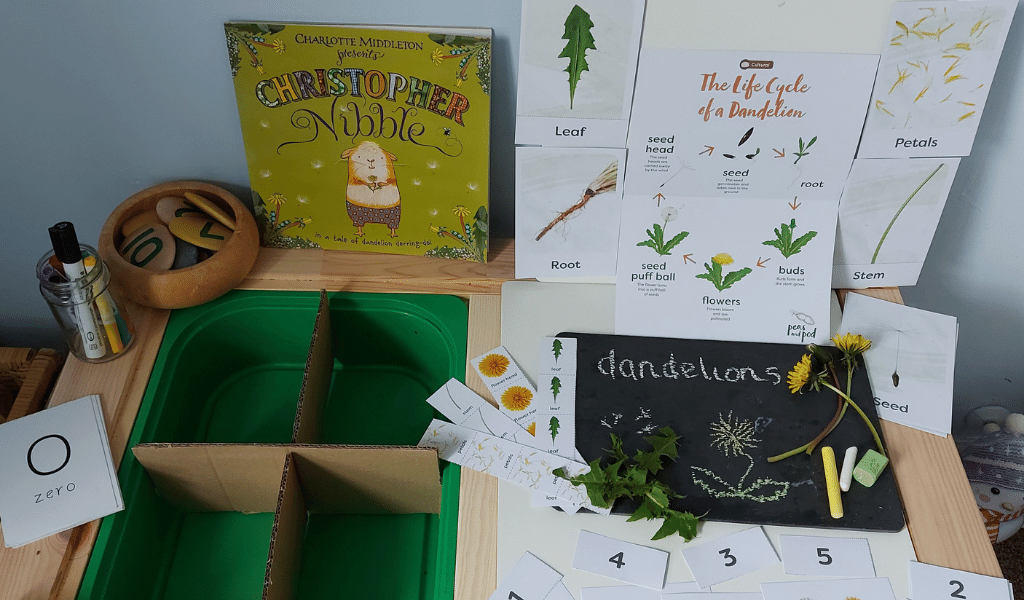
Roll up your sleeves and explore sensory and artistic play
With their bright petals and fluffy seed head, dandelions make a wonderful addition to sensory play. You could add the flower heads to water play for children to explore or even to your mud kitchen alongside a variety of citrus fruits to make dandelion tea or soup. Adding scissors to this play can encourage the children to develop their scissor control as well as learning to identify a ‘name the parts of a flower’ (e.g. leaves, stem, petals, flower head, seed, roots). You could also add items such as a pestle and mortar, potato mashers and tea strainers to encourage the children to explore different ways the flowers can be changed and the effects that these tools create.
Dandelion petals (alongside food colouring or turmeric) make an exciting addition to playdough, adding texture and colour for children to explore – you can also add flower heads, leaves, stem and seed heads as loose parts to further enhance the play opportunities. Enhance this with pictures of dandelions and/or a jam jar full of blooms to inspire children’s play.
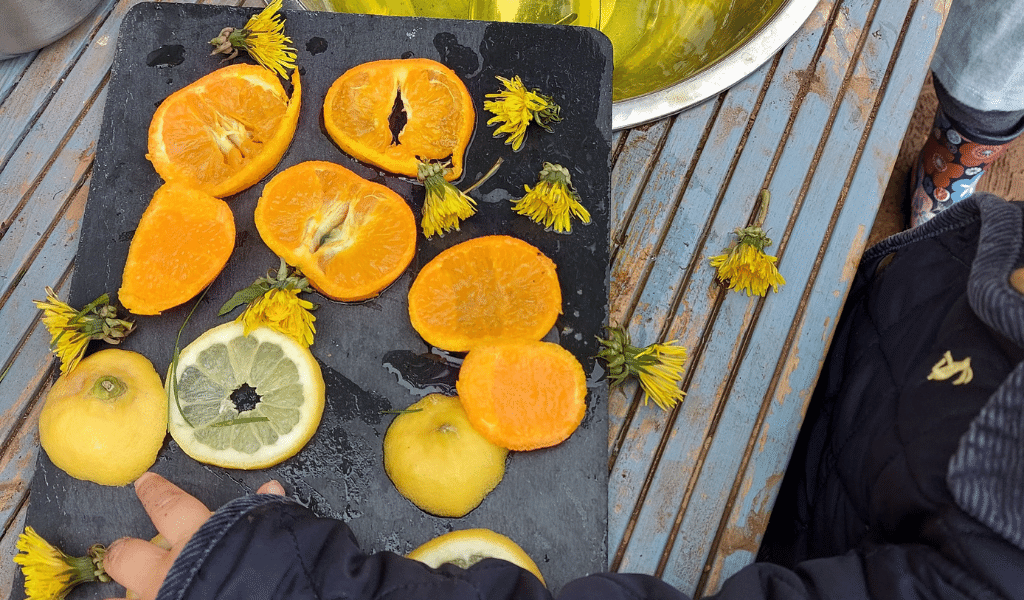
Did you know that dandelions get their name from their leaves which look like a row of lion’s teeth? Creating a dande-lion using leaves and petals is an inviting way to bring nature into artistic play. You could create a template for children to stick on to, to weave, to thread, you could create it from clay or just let the children create their own interpretations.
Did you know that dandelions are edible? Why not try making dandelion lemonade with:
4 litres of water
1 – 2 cups of honey
4 lemons
4 cups of fresh (washed) dandelion flowers
Add all the ingredients together in a jug and leave to sit for a few hours before serving with a snack! You could also try making dandelion and lemon biscuits (lots of recipes are available on the internet – I highly recommend this one though!! https://www.warwickshirewildlifetrust.org.uk/blog/louise-barrack/make-dandelion-lemon-cookies ) There are so many valuable skills to be gained from baking from measuring and comparing quantities, observing changes to developing gross and fine motor skills. Adding natural ingredients is another wonderful way to add nature into children’s learning and teach them about where their food comes from.
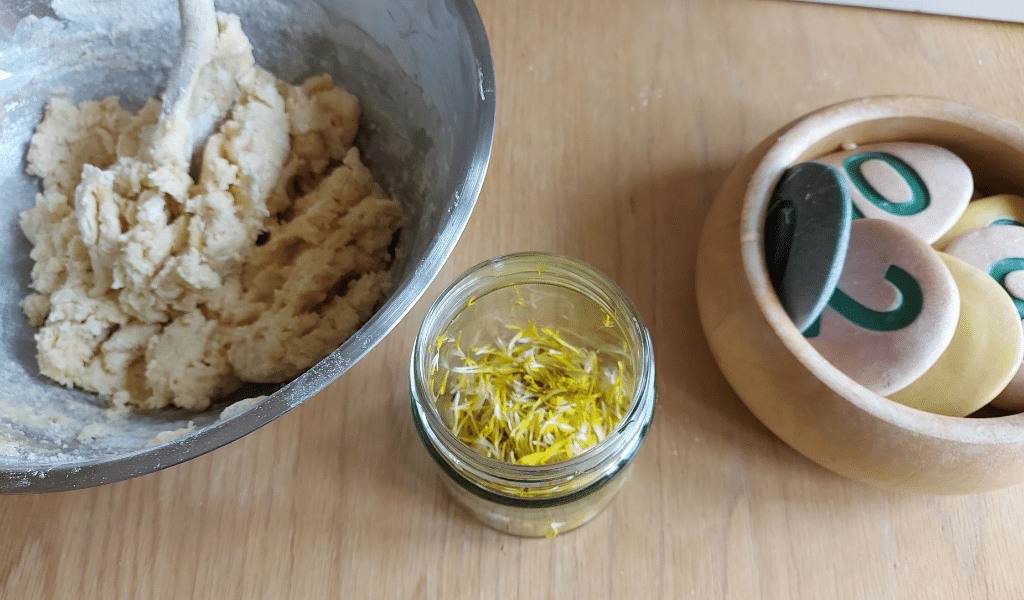
There are some truly fabulous books about dandelions – fiction and non-fiction. My absolute favourite is Christopher Nibble by Charlotte Middleton which tells the story of a young guinea pig who cares for and grows the only remaining dandelion in his town in order to protect and maintain dandelions for all guinea pigs. As well as being a wonderful story it explains the life cycle of a dandelion and the importance of preserving our environment. Other lovely titles are Dandelion Magic by Darren Farrell; The Dandelion’s Tale by Kevin Sheehan and Rob Dunlavey; and The Dandelion Seed by Joseph Anthony.
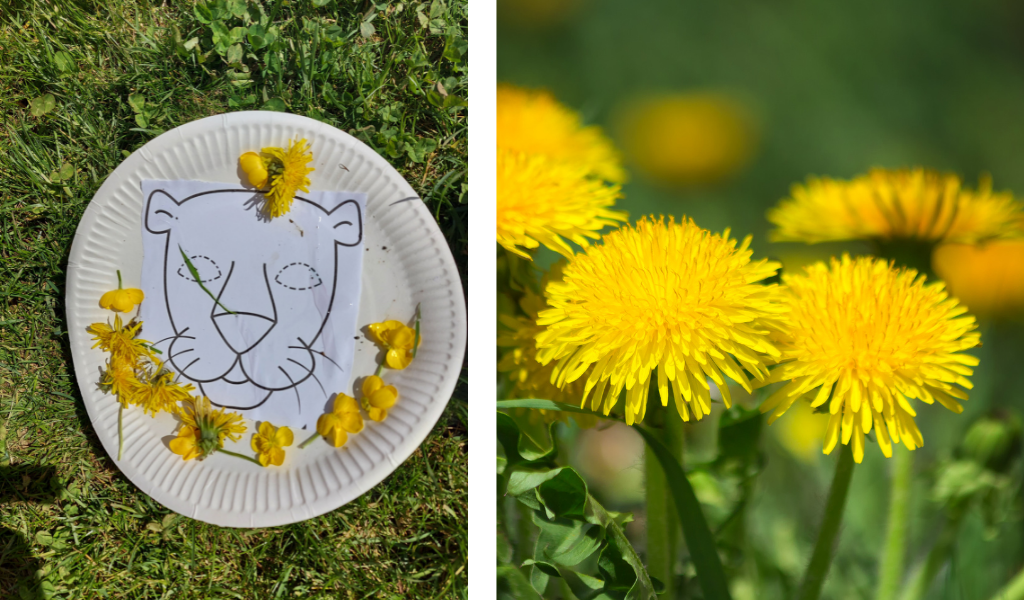
Hey ho! Pip and Dandy…lion! A word of advice when foraging for dandelions – try to choose areas that are away from busy roads and not in popular dog walking areas and ALWAYS thoroughly wash them before using them in any sort of activity.
Dandelions are so much more than a weed! They are sun, moon and stars! They are light and sunshine! They are wishes waiting to be made! And they are, most certainly, the providers of magical opportunities for natural learning in your setting!
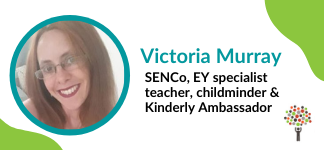
Vikkie Murray has worked in education for over 15 years – as a qualified early years teacher, SENDCo, early years specialist teacher for a national daycare company and most recently as a registered childminder. She is currently undertaking the Hygge in the Early Years accreditation, is a Kinderly Ambassador and is a passionate advocate for child-led learning.